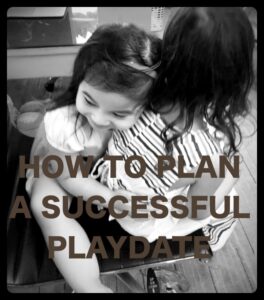
Scheduling a playdate for your child not only encourages the development of his social skills. It also benefits their well-being, satisfying the third level of needs as theorized by Maslow under ‘Love and Belongingness’. In attempting to achieve this, you are saving them from depression and social isolation.
Finding a friend is ultimately one of the many subtle achievements one can establish. While many factors are to be considered in doing so (i.e. same likes, ability to understand each other using the same language and a conducive environment for it develop), friendships are something we hold dear in our hearts. As parents, how do we guide our young ones in landing one? Here’s to those who have primary year students.
Dismissed classes
For the week of Nov. 19-24, classes were continuously suspended from Thursday in Hong Kong due to riots that had prevailed because of the already-withdrawn extradition bill. It eventually progressed to an aggressive plea called “5 Key Demands, Not One Less” implementation by the HKSAR government. Roadblocks happened and daily operations like transportation and alike got affected. And so, the Education Bureau had to suspend classes for more than a week. Kids got stuck at home with not much to do except take-home assignments with lingering questions in their mind, why are they not going to school.
In an attempt to divert the attention of my 5-year old to something positive, I suggested for her to have a playdate with the daughter of a colleague from work. She got excited and I thought, I would take it as an opportunity to imply a learning curve in between. Reading Richard Lavoie’s book, It’s So Much Work To Be Your Friend: Helping the Child with Learning Disabilities Find Social Success, the subject, ‘finding friends’ caught my attention. It spoke of how to plan a successful playdate.
“People don’t plan to fail, they just fail to plan.”
Upon acknowledgment of your invitation, planning may be the key to a successful playdate. Here are some of the suggestions the book mentioned:
- “House Rules” should be established first hand.
Ex. No visitors will be allowed to enter the master’s bedroom or Dad’s office
Letting them know this first hand will prevent conflict as a rule is cited to the guest. For example, if the guest attempts to enter the off-limits room, it won’t be taken offensively if the kid host would say, “We’re not allowed to go in there.” Also, the kids would know the importance of respecting authority, asking permission and acting appropriately. - Ideally, playdates should involve not more than two children.
Inviting more than two might end up too much to handle. Grouping of three children may encourage ganging up and may end up in a two-against-one scenario. To assist a budding friendship, a couple of kids would be more ideal. Three just leaving the least social to be the odd man out. - Take note of the involvement of the playdate’s sibling.
There’s an impending failure when the guest prefers the sibling more than the kid host. This results in a negative impact on the set playdate because it may cause hostility and understandable jealousy. Prepare guidelines for siblings inside the house before the guest arrives. Include giving space to the kid host and their guests to avoid this. For example, make the kid host’s room off-limits to the siblings when he has a visitor. If they all have had smooth encounters from before, then observe. If they are aware of their differences and are more than willing to work it out on their own, then it should be all good. - Be present discreetly so that you can intervene just if a conflict arises.
There’s a leeway that should be given to them as they get conflicts worked out.
Just be mindful when the kids get out of control. Otherwise, encourage them to resolve their differences. - The kid host should practice manners in welcoming the kid guest.
Upon greeting and receiving the guest from the door, the kid host should introduce his guest to the family. This could also be a chance to show the kid guest around the house before going to the area of play. It is an exercise to practicing courtesy, cultivating it into the kid guest that this is observed in the kid host’s home. - Set a brief schedule.
Introduce one to two hours of play date schedule initially. Avoid going for an all-day play date, most especially when it’s their first time having one. Because this may just tire the establishing friendship. It may be lengthened once the relationship and the social skills of both parties have developed. - Assist your child in tidying up the room before the guest arrives.
Develop in your child a habit of making their room or play area attractive and appealing as possible in anticipation of the guest’s arrival. This is to emphasize the importance of being socially appropriate and desirable that could make their guests visit pleasurable. This is establishing your child’s responsibility as the host of the playdate. If you see signs of laziness, ask your kid whether he wants to push the playdate through or not. In this situation, the kid should never be threatened that the playdate will be canceled if he’s not complying with cleaning up. Every child has the right to play and it should not be imposed as something to be earned. Know the rest of the children’s rights here. - If the kid host has a particular toy that she liked or may break, and is not comfortable to share, remind him to put it away to prevent conflict with the guest.
This is to ensure there would be no reason to end up fighting because of this particular toy. This may have been the number one suggestion setting all limits from the beginning. - Provide the kids with a good experience.
Take effort in making your home enjoyable each visit. Have great toys, suggest games and provide snacks. Be welcoming and practice hospitality sincerely. Your kids will follow your example and will naturally be inviting towards any guest in the long haul. This doesn’t mean you are buying friends for your kids, though it works. It’s something that makes them feel cared for, safe and secure. It’s an approach to building rapport. - End the playdate positively.
This is when making the playdate as brief as possible becomes helpful. When they spend too much time with each other, they eventually get tired and bored, then bicker on each other. And without intending to do so, they most often become rude to each other as they test each other’s limits. But what a kid remembers in each play date is the final fifteen minutes so facilitate the playdate to be positive and upbeat. This enhances camaraderie and will usually make the guest wish to return another day.
It may be perceived that this kind of planning may be too much to propose. But to ensure a successful friendship, this list could help you teach social skills that kids may use to thrive later in their primary years. Or even when they become adults.

